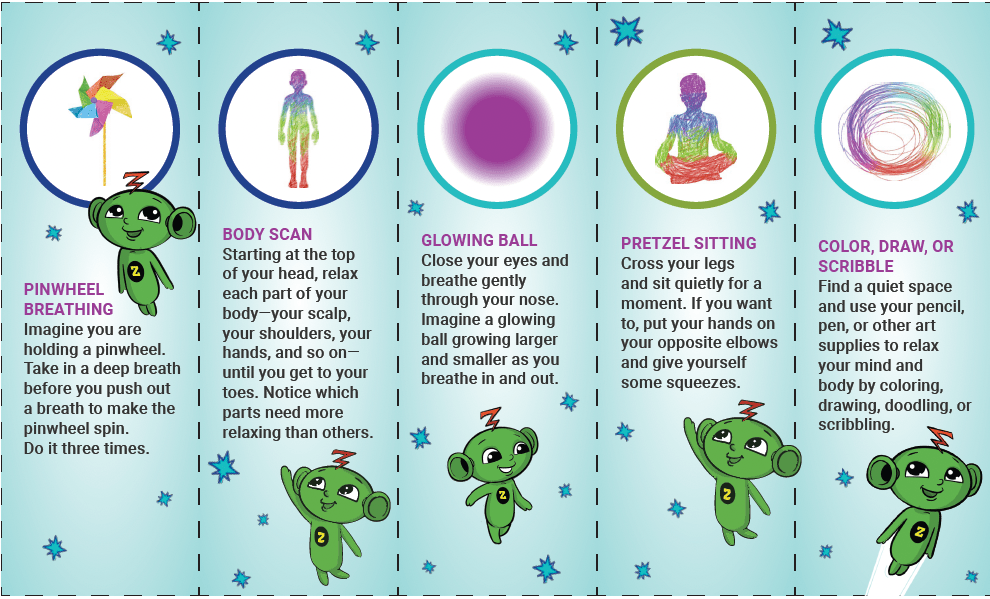
May is Mental Health Awareness Month which includes a focus on our well-being. This highlights the importance of recognizing our internal and external stressors and to use tools to manage those stressors. For teachers and students, one of those stressors is often testing! At Harmony Academy, we provide resources to equip students to recognize their emotions, decelerate their levels of stress, and accelerate their confidence to perform the best they can. Here are some quick and easy tips and techniques from the Harmony Curriculum that students (and those who support them) can infuse into the classroom:
Our Relaxation Stations offers quick breathing activities you can do with your students. Example activities include:
• Butterfly Breath
• Focus Match
Our Mindful Minute provides quick activities to center ourselves and regulate our emotions when our emotions may be big or small. Helpful Mindful Minute activities include:
• Breathe in and then blow your breath out slowly, imagining the shape of an ice sculpture that your breath is creating in the air.
• Look around the room carefully. Notice something you normally wouldn’t pay attention to, like the edge of a shelf or a single crayon. Look at it carefully. Think about what you notice. Now pick something else. Repeat two more times.
• Think of your “happy place.” Imagine that you have suddenly been transported there. What do you see? What do you hear? What do you smell? What do you feel? What do you taste?
Having the opportunity to connect with our buddies can help us destress and ready ourselves for the next activities. Quick conversations and collaborations might include:
• Conversations— “Time is what we want most, but what we use worst”-William Penn. What is a strategy that can help you use your time wisely?
• Collaborations— Put a puzzle together with your buddy.
UNITS, LESSONS, AND ACTIVITIES
Remind students of the emotion regulation lessons that help them cool off and direct their emotions when they experience big emotions. Helpful lessons might include:
• It’s Time to Cool Off (U1 L 4)—students apply some cooling off strategies to different situations.
• Having a Growth Mindset (U1 L5)—students explore the difference between having a growth mindset versus a fixed mindset.
Download our Bookmarks as a Resource for Student Support
